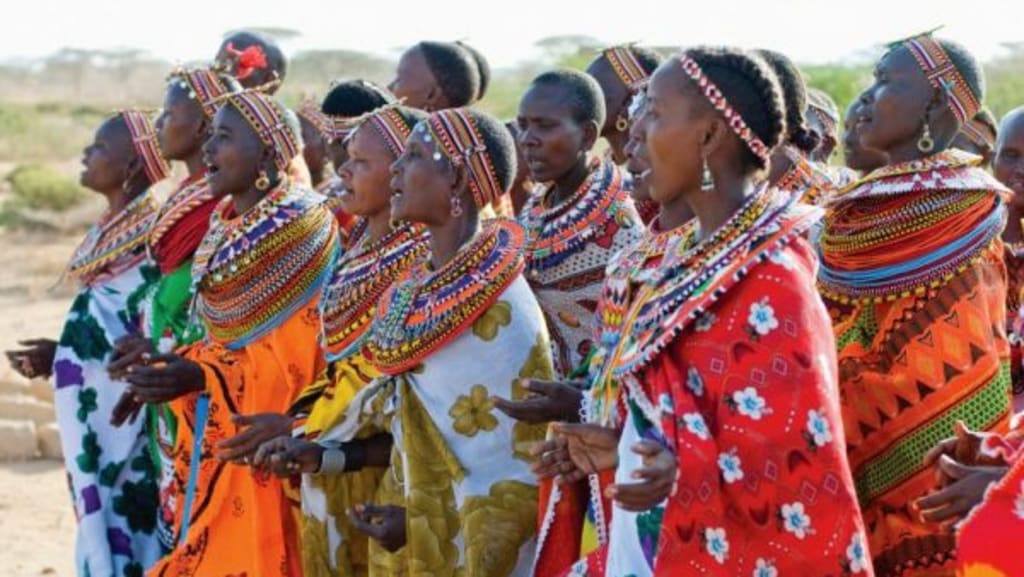Why I'm Asking for Tips to Visit a Women's Only Village In Africa
My life has hit another snag. I’m at a crossroad, trying to decide what to do. An idea came to me: it’s time to go to Kenya.

I was at a low point in my life. To work my husband through college, I moved 2,500 miles away from my home, my family, and my friends. I took an office job as a temp where I had nothing to do. I was bored, and I was lonely.
All I really wanted was to write books. I had plenty of time for it, since my job was basically to sit in front of a computer and pretend like I was working. My life had put me in a funk, and any creative spark was difficult to find.
That all changed when I discovered Umoja.
Surfing the internet helped to pass the time during my long days at “work.” One day, I stumbled onto a story about a women-only village in Kenya. The women founded the village to get away from a pastoral, patriarchal tribe called Samburu.
I was in shock as I read about children being married off to men in their 40s, husbands beating their wives with no legal consequences, and female circumcision: a process where a woman’s clitoris is cut out and the labia is sewn together so that a woman can feel no sexual pleasure. The concept of female genital mutilation is barbaric enough, but women who have it also die from infection and complications in child birth.
The worst part, however, was beading. The practice is so horrifying that it’s hard for me to talk about. In Samburu culture, men aren’t allowed to marry until they’re in their 30s. That’s a long time to be celibate, so men will take a girl (usually a family member), and use her for sex. It gets worse. The girl is unable to be married after this, and she’s not allowed to have children. Any child she conceives from beading is killed.
These human rights violations reached their peak when the British army came to Kenya for training. Thousands of women reported that they had been raped by the soldiers. The British government said it was impossible to tell if the women really were raped, or if they were prostitutes, or if the whole thing was a lie. They did nothing.
The women who had been raped were outcasts. Their husbands threw them out, and their half-white children were bullied.
Enough was enough. These women got nothing but misery from men. So, they started a village without them.
Umoja was the first, and other villages have sprouted since then. They host tourists, they sell beads at Support Samburu on Etsy, and they take donations from Samburu Youth Education Fund so they can support themselves and send their children to school.
My imagination caught fire.
For years, I had wanted to write a retelling of the Greek legend of the Amazon warriors. The Amazons (for those of you who haven’t seen Wonder Woman) were giant women who were ferocious in battle. I loved the legend, but I didn’t have a story yet. I didn’t have a spark.
When I read about Umoja, I imagined a women-only warrior tribe with dark skin who ran a refuge for abused women. The story consumed me. I wrote the entire book in 18 days.
It was the best thing I’ve ever written. Yet, there was something missing from the story, and I couldn’t tell what. I put the story away, always meaning to take it back up some day.
Now, years later, my life has hit another snag. I’m at a crossroad, trying to decide what to do. An idea came to me: it’s time to go to Kenya.
I want to visit these women-only villages in-person and write about my experience. My book will alternate between a novel about the Amazons and a memoir about my journey to finish it.
This is where you come in. I’m looking to raise money for the trip through Vocal by gaining reads and earning tips. If you believe in this story and you want to see it happen, please support me by reading my articles, sharing them, and leaving tips.
Thank you for reading my story, and thank you for your support!
About the Creator
Teralyn Pilgrim
Teralyn Pilgrim has an MFA in Creative Writing from Western New England University and a BA in English from Brigham Young University. Her work has been published in the Copperfield Review.






Comments
There are no comments for this story
Be the first to respond and start the conversation.